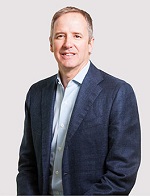South San Francisco biotech Tizona Therapeutics is coming out of stealth with more than $70 million raised through two funding rounds and a pair of projects it believes can stand out in the fast-moving field of immuno-oncology.
 |
| Pablo Cagnoni |
Led by Onyx Pharmaceuticals veteran Pablo Cagnoni, Tizona just wrapped up a $43 million B round co-led by Abingworth and Canaan Partners with help from Lightstone Ventures and a pack of prior investors. The latest funds pile onto a previously unannounced Series A, which totaled roughly $27 million and brought together MPM Capital, Amgen ($AMGN) Ventures, Astellas Venture Management and InterWest Partners.
That cash will keep the doors open for about two years, Tizona said, and the biotech is pressing forward on two immunological targets with applications in cancer.
The first is an antibody for the CCR4 protein, designed to modulate the regulatory T cells that help cancer skate past the immune system. Other agents in immuno-oncology have proven effective at releasing the brakes on effector T cells to help the body fight malignancies, but the micro-environment surrounding tumors remains highly immunosuppressive, Cagnoni said. Blocking CCR4, the company believes, can deplete the regulatory T cells, or T-regs, that protect cancer cells in that micro-environment, making Tizona's antibody a potentially potent part of a one-two punch in oncology.
The company's second disclosed candidate is an antibody against interleukin-35, a protein secreted by T-regs to tamp down immunological response. Tizona's ambitions in IL-35 are two-fold: The biotech is at work on an antibody that can block it and thus help the body fight cancer, while at the same time crafting an IL-35 booster that could help slow down the inflammatory process in autoimmune disorders like Crohn's disease.
Tizona said it's on track to get its CCR4 therapy into clinical trials next year, and the company hopes to get one new treatment into Phase I each year thereafter. Behind its CCR4 and IL-35 candidates, the company has three more as-yet-undisclosed projects, Cagnoni said.
To get there, Tizona is planning to double its current staff of 13, scouting for talent as it builds out its pipeline. Tizona's plan is to take its candidates as far as that $70 million will take them, after which the biotech will look to either raise more money or extend its runway through a partnership, Cagnoni said.
Cagnoni took the reins at Tizona last year following a stint as president of Onyx Pharmaceuticals that concluded after Amgen completed its $10 billion acquisition of the company. Before that, Cagnoni served as head of clinical development at Novartis' ($NVS) oncology division, playing a role in the successes of Afinitor, Exjade, Glivec and other cancer treatments.
In leaving the world of big-time drugmakers for the startup scene, Cagnoni joins a growing group of pharma expats who have decamped to lead smaller companies in recent years. Former AstraZeneca ($AZN) R&D boss Briggs Morrison followed a similar path when he took over Syndax ($SNDX), as did ex-Merck KGaA research chief Annalisa Jenkins at Dimension Therapeutics ($DMTX) and one-time Biogen ($BIIB) R&D leader Doug Williams at Codiak BioSciences.
But "it's not about big versus small," Cagnoni said. His experience with companies whose payroll measures in the thousands was "invaluable" as Tizona came together, even if he's still getting used to handling his own literature searches.
"In a small company, you have to do certain things you haven't done in a while," Cagnoni said. "But at the same time, the amount of time you spend in a large company on decisionmaking bodies, restructurings, off-site--I'll take fixing the paper jam any day."
- read the statement